Romina Lutz, whose artwork “Keeper of the Lights” graces the cover of the Winter 2017 issue of Midwestern Gothic, was kind enough to chat with us about the piece and what it means to her.
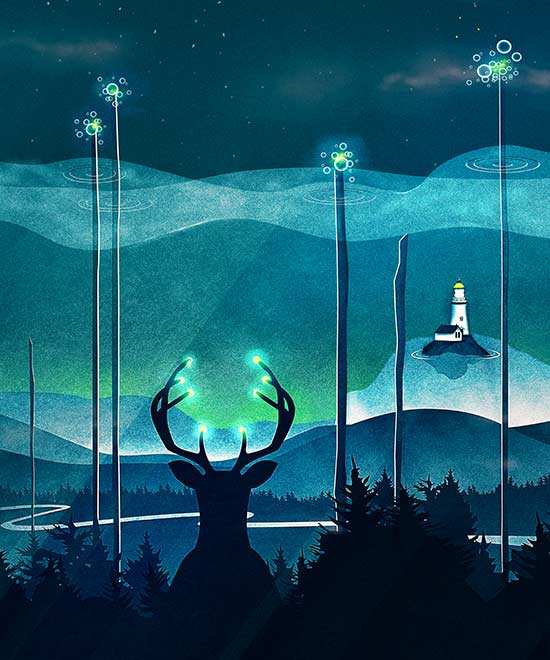
Romina: No matter how much effort human mankind puts into the exploration of mother earth’s wonders, nature will always remain the greatest and most beautiful mystery we have the fortune to live in. It teaches us dreamy magic that we will never be capable of understanding. Conclusion: Respecting mother nature reveals her greatest gift: To keep our days alight.
**
 Romina Lutz
Romina Lutz aka “Schwebewesen” is a digital artist who creates surrealistic and dreamy vector art. Her interests are traveling, books, music, taking pictures, cycling and savoring life. You can buy Schwebewesen art prints and various products through her website ►
www.romina-lutz.at or follow her on social media:
February 20th, 2017 |
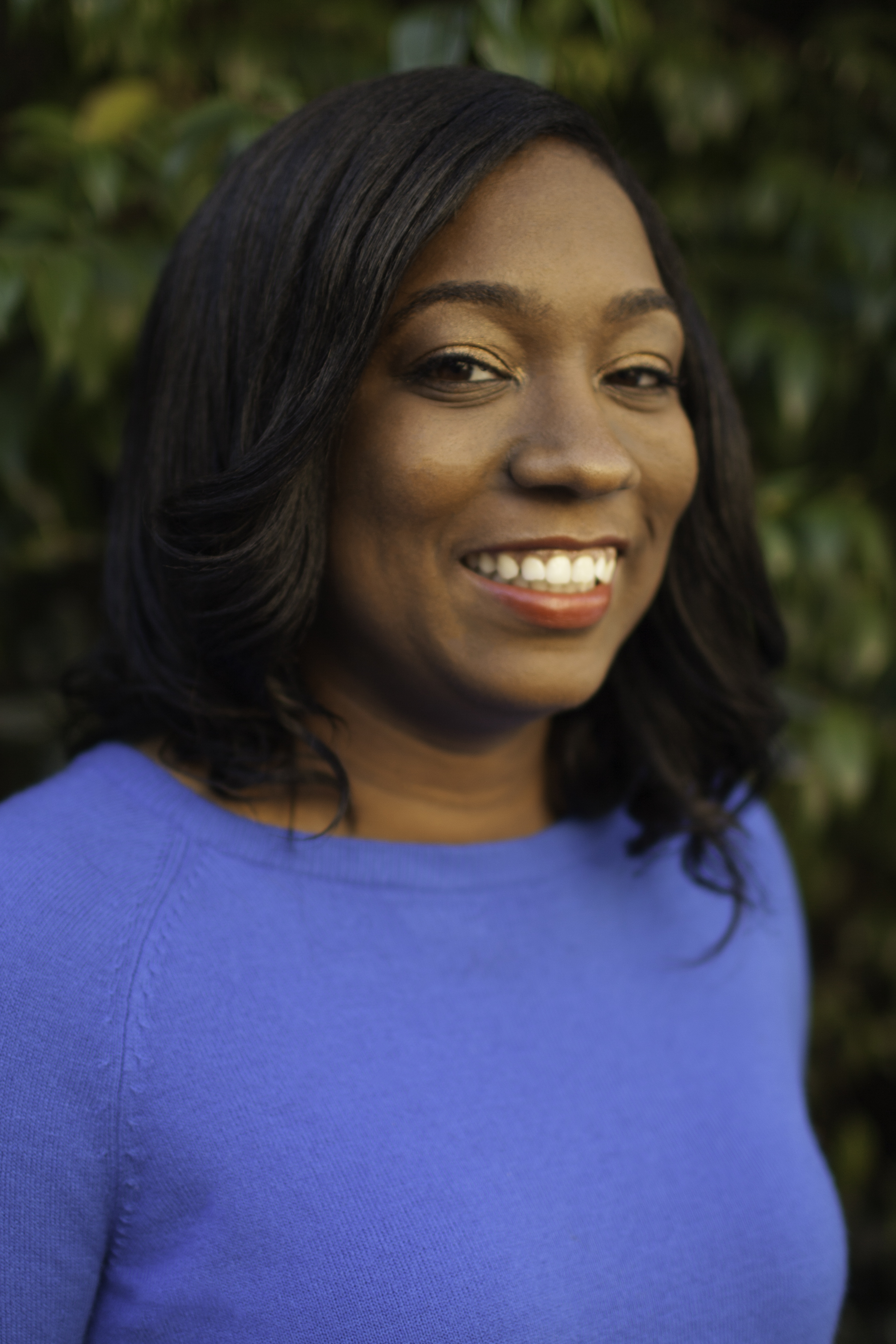 Midwestern Gothic staffer Megan Valley talked with author Brit Bennett about The Mothers, writing about the complex and emotional issue of abortion, beginning with a question, and more.
Midwestern Gothic staffer Megan Valley talked with author Brit Bennett about The Mothers, writing about the complex and emotional issue of abortion, beginning with a question, and more.
**
Megan Valley: What’s your connection to the Midwest?
Brit Bennett: I lived in Ann Arbor for three years while completing my MFA in fiction at the University of Michigan
MV: The Mothers opens with Nadia’s abortion, something that most stories about pregnant young women use as a tragic plot point or ignore completely. What did you want to do differently with the subject?
BB: I didn’t want to write the story where a woman has an abortion and it destroys her. Aside from the fact that it seems unrepresentative of many women’s experiences, it’s also a familiar and manipulative storyline. At the same time, in fiction, a character’s decisions have to carry weight — otherwise, what’s the point? — so I knew this would have to be a choice Nadia continues to think and feely deeply about throughout the book. Writing the book became a balancing act between those two poles. From a political perspective, I wanted to explore this topic with nuance often missing from our public debates, and from a craft perspective, I wanted characters to have complex emotional reactions to what is a complex, emotional issue.
MV: What do you read in between your writing projects?
BB: I try to read a mix of non-fiction and fiction all the time. A few novels that were important to me while I wrote The Mothers: Americanah by Chimamanda Ngozi Adichie, Bastard Out of Carolina by Dorothy Allison, Salvage the Bones by Jesmyn Ward, and Song of Solomon by Toni Morrison.
MV: You began writing The Mothers as an undergraduate at Stanford, continuing to rework it as an MFA student at the University of Michigan. How did you develop as a writer alongside your work?
BB: I learned a lot of practical skills, like how to integrate summary and scene, how to raise narrative stakes, how to revise. But beyond that, I grew up as a person, so I learned how to be more patient with myself and my work, how to receive criticism and still remain confident in my own vision for my book.
MV: While The Mothers is your first novel, you’ve written several nonfiction essays, which have been published on Jezebel and for The Paris Review; do you take a different approach to writing online than you do for a piece of fiction?
BB: I try to approach both mediums with big questions and expanding empathy. I think online writing is generally more immediate, so there’s often more pressure with deadlines to finish a piece quickly. Fiction is a slower process for me. Also, non-fiction writing often requires me to be more blatant with my line of thought where fiction allows me to be a bit subtler.
MV: What is the best piece of advice you’ve ever received about writing?
BB: An MFA professor used to tell us, always start with a question. Beginning with a question gives your writing focus — it directs you toward what the writing is ‘about’. Beyond that, your writing opens up when you approach it as a question you want to explore, rather than a statement you want to make or an argument you want to prove.
MV: At Midwestern Gothic, we’re especially concerned with how place and setting shape a story; how is the setting, southern California, important to The Mothers?
BB: The Mothers is set in Oceanside, which is a beach town and a military town. In a military town, people come and go all the time, so community becomes an important and fragile thing. I think The Mothers is about the value of these communities, their benefits and their limitations as safe havens. Beyond that, Southern California can be a beautiful yet dangerous place. On one hand, you have this coastal beauty, but on the other hand, there’s the constant threat of wildfire. I think that tension — a hidden danger lying beneath a veneer of safety—plays out within the relationships in the novel.
MV: Which writers have most influenced your style?
BB: Probably Toni Morrison and James Baldwin. Both writers who have produced incredible fiction and non-fiction, and writers who explore big questions with beautiful language.
MV: What’s next for you?
BB: I just started a new novel, and hopefully I’ll work on more essays in the future
**
Brit Bennett earned her MFA in fiction at the University of Michigan, where she won a Hopwood Award as well as a Hurston/Wright Award for College Writers. She is a National Book Foundation “5 under 35” honoree. Her essays are featured in The New Yorker, The New York Times Magazine, The Paris Review, and Jezebel, and her debut novel The Mothers is out from Riverhead Books.
February 16th, 2017 |
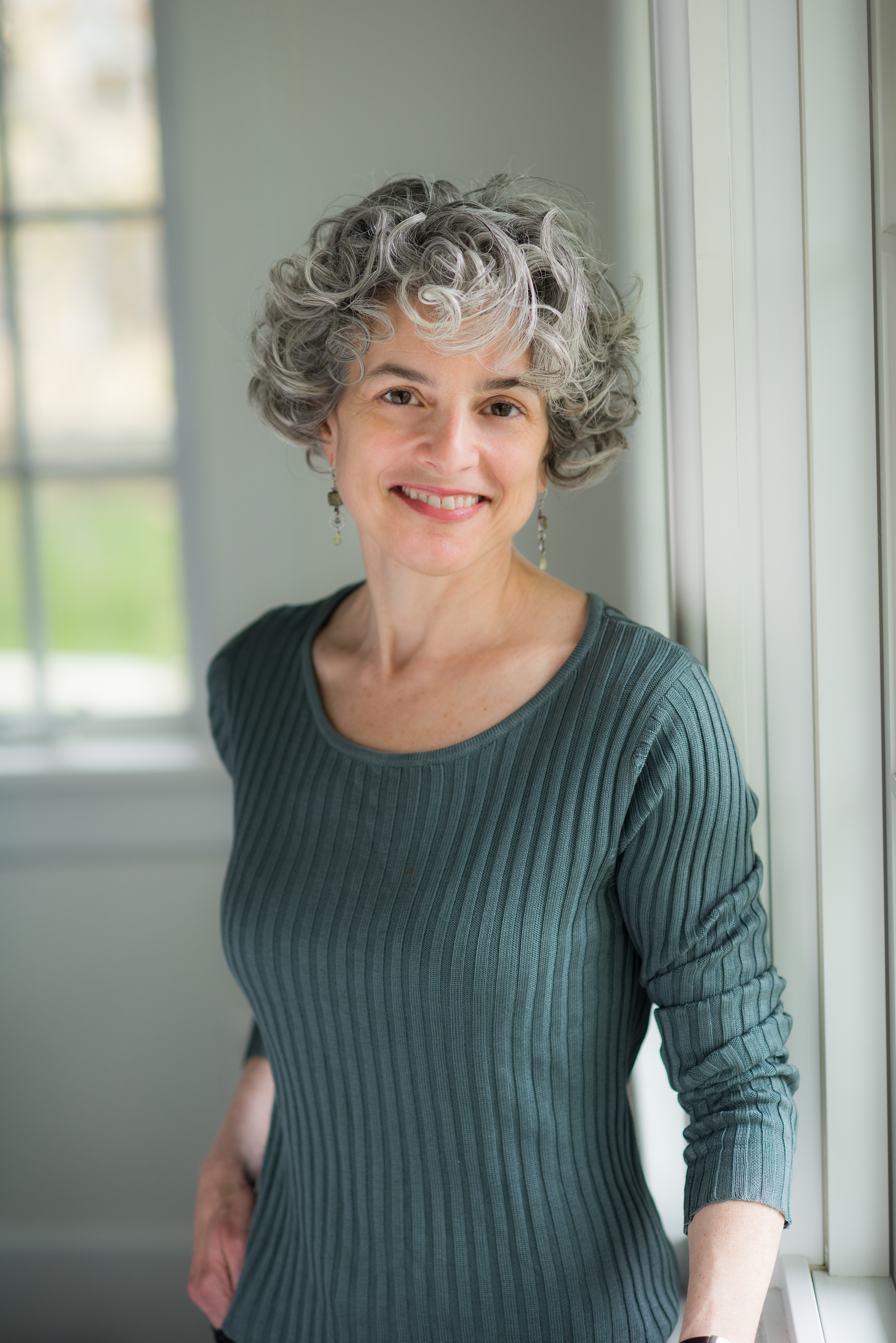 Midwestern Gothic staffer Megan Valley talked with author Pamela Erens about Eleven Hours, the underdeveloped theme of childbirth, writing for herself and more.
Midwestern Gothic staffer Megan Valley talked with author Pamela Erens about Eleven Hours, the underdeveloped theme of childbirth, writing for herself and more.
**
Megan Valley: What is your connection to the Midwest?
Pamela Erens: I was born in Chicago and lived there for my first sixteen years. After that, I was at boarding school and then in college on the East Coast, but returned for vacations. After college, I moved permanently to the East Coast because I wanted to work in magazine editing and that’s where most of the jobs were.
MV: Previously you were an editor at Glamour magazine; was there a transition to becoming a novel-writer, or was it more a change of vocation?
PE: I loved editing but in my heart I always hoped to write books eventually. In terms of making a living, I knew I didn’t have the temperament to be a full-time freelance writer, so an editing job and writing on the side was the right thing for me. In the twelve years I worked as an editor, I always wrote as well, sometimes for the magazines I worked for, sometimes for other publications, and I worked on my fiction. But I didn’t tackle my first novel until after I had left magazine work and was at home with an infant.
MV: Eleven Hours is your third novel; how has your approach to writing changed since you published your first novel?
PE: I’m not sure it’s changed all that much. I probably have a little less discipline, or am a little more relaxed, depending on how you look at it. When my kids were extremely young, I had a babysitter for however many hours on a particular day and the writing had to get done then. As they got older, I could work at almost any time, and that meant more procrastination, more willingness to let myself get distracted. Or maybe I just developed more trust that the work would get done even if I wasn’t as rigid about it.
In other ways, my process is the same: months of daydreaming and note-taking and research, followed by sketches and slowly circling toward the material, characters, and narrative voice.
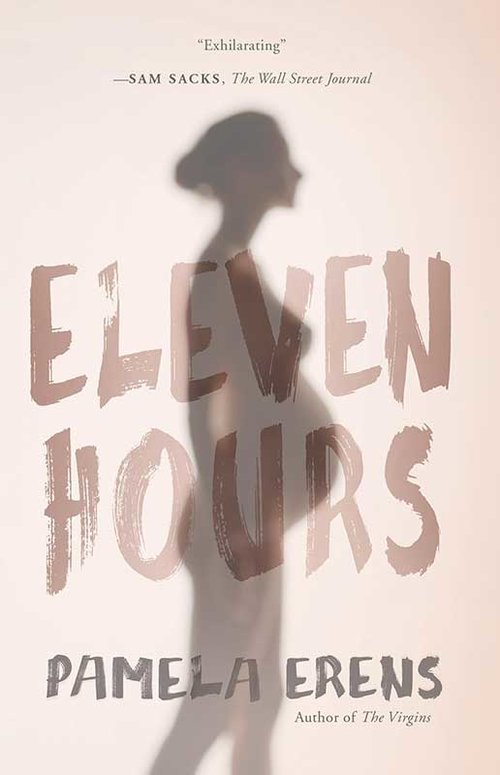
MV: Which writer has most influence your style?
PE: There is no one writer who has had the most influence. Each of my books has a different “influencer” or influencers. For The Understory, it was William Trevor and John Banville. For The Virgins, it was James Salter. For Eleven Hours, it was Virginia Woolf. Other writers who have influenced me, or at least taught me, are John Cheever and Eudora Welty. But I’m influenced by almost every writer I read. I constantly find myself importing aspects of other writers’ voices or craft into my own work, even in very small ways.
MV: In previous interviews, you’ve reiterated that childbirth is an underdeveloped area in fiction. Whatever the reason for that is, why is it so important to bring it to the forefront and focus an entire novel, Eleven Hours, on it?
PE: Well, I’m a fiction writer, so I don’t go at these things so polemically. I felt a strong emotional connection to the subject of childbirth, and the idea of taking a whole novel to deal with one labor and delivery excited me formally. It seemed like a cool idea and I wanted to see if I could pull it off. But, yes, childbirth is unquestionably under-treated material, and any under-treated material is an opportunity for fiction.
MV: Men are far removed from Lore and Franckline in Eleven Hours: Lore is estranged from her baby’s father and Franckline has not informed her husband of her pregnancy out of superstition of miscarrying. Other than the obvious physical implications of childbirth, why was it so important to focus on women?
PE: Again, my answer will be personal and circumstantial! I wasn’t making a political point in focusing on women. The material, as you say, naturally brought that end, and the only intentionality here, really, was that I hadn’t done a novel yet with only female protagonists. So I liked the idea of doing so just to keep things new for me, to keep myself stretching.
MV: What’s the best piece of advice on writing that you’ve ever received?
PE: The author Richard Bausch posts wonderful things on Facebook — he has a generous and inspiring way of talking about writing fiction that comes out being very in touch with and honest about his own process. One of the things he says is that if you put in your time each day, you’ve done the work. You’ve succeeded. It doesn’t matter if you throw everything out the next day. It doesn’t matter if what you’ve done proves to be wooden or dead (I’m putting all this in my own words). I doesn’t matter if you stared at the screen for two hours and wrote five words. You did the work. That’s all you can do. I find that very beautiful and helpful. I try to remember it.
MV: What’s next for you?
PE: I’m getting a new novel launched — at least, I think I am. As usual, it’s a slow process, with much self-doubt and distractions. Wish me luck!
**
Pamela Erens is the author of the novels Eleven Hours, The Virgins, and The Understory, all from Tin House Books. She has been a finalist for the Los Angeles Times Book Prize for First Fiction, the William Saroyan International Prize for Writing, and the John Gardner Fiction Book Award. The Virgins was a New York Times Editors’ Choice and was named a Best Book of 2013 by The New Yorker, The New Republic, Salon, and Library Journal. Erens’s essays and criticism have appeared in publications such as Vogue, Elle, Slate, The New York Times, The Millions, and Los Angeles Review of Books. Reader’s Digest has named her one of “23 Contemporary Writers You Should Have Read by Now.”
February 9th, 2017 |
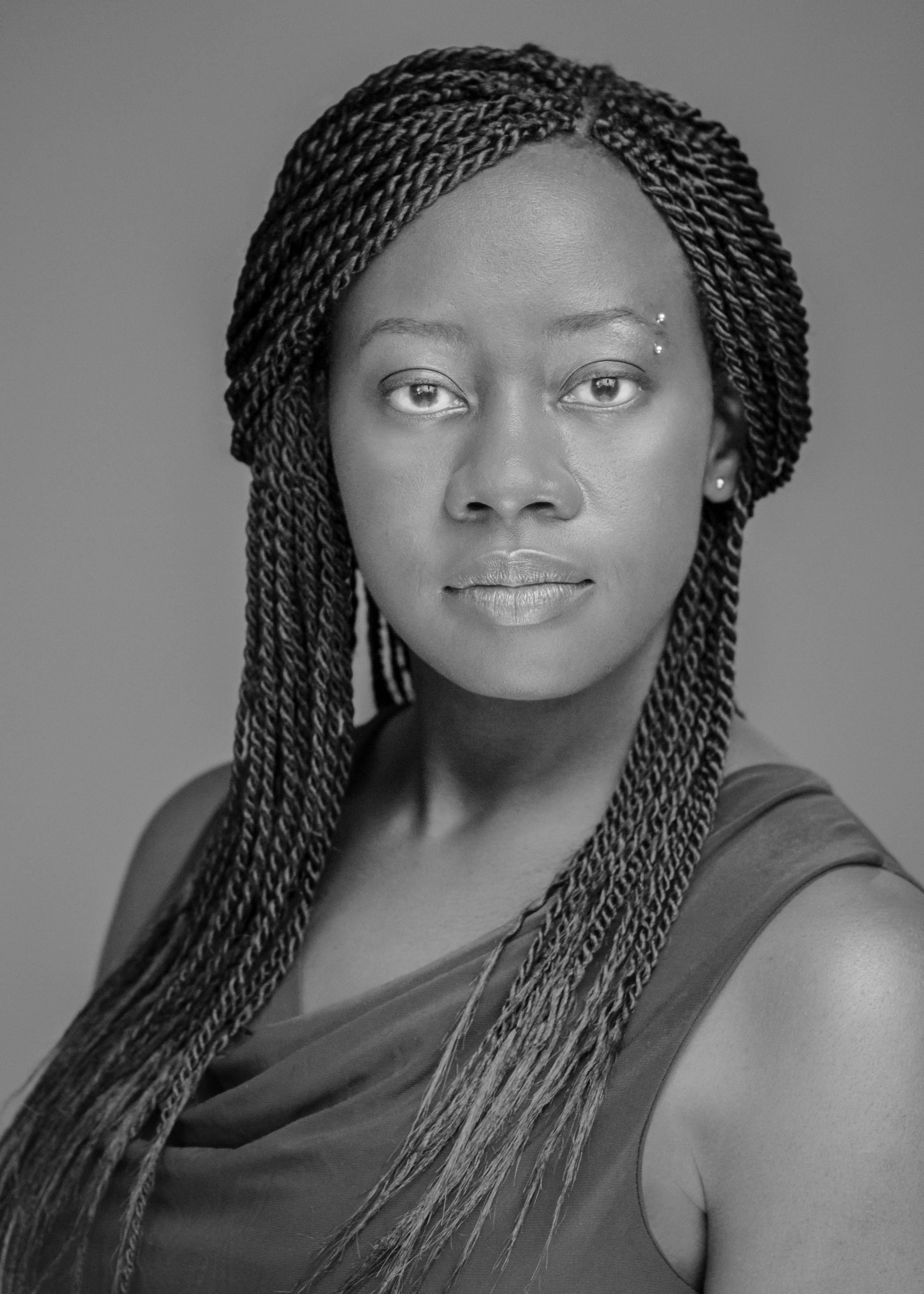 Midwestern Gothic staffer Megan Valley talked with author Julie Iromuanya about Mr. and Mrs. Doctor, her development as a writer, rural alienation, and more.
Midwestern Gothic staffer Megan Valley talked with author Julie Iromuanya about Mr. and Mrs. Doctor, her development as a writer, rural alienation, and more.
**
Megan Valley: What’s your connection to the Midwest?
Julia Iromuanya: I’m a Cornhusker! My parents, who are from Nigeria, are immigrants to Nebraska. I was born and raised in Lincoln.
MV: How has teaching creative writing in the University of Arizona MFA program influenced your writing?
JI: One thing that is most exciting about being part U of A’s MFA program is working with students who have such a broad range and depth of literary influences. My writing and thinking is pushed and energized by the work the students are producing and their needs as writers. For next term, I’m developing a craft course on deconstructing race in fiction. It’s something I’ve wanted to teach for a long time, but I never really had the space to create it. I’m really having to re-think how I conceptualize “play” around identity in my own work.
MV: Was there a breakthrough moment when you knew you wanted to be a writer?
JI: I’ve always identified as a writer, so I don’t believe I ever had a “breakthrough moment.” When I was a little girl, I had a makeshift office in our dining room with my own typewriter — I even sent out query letters to publishers when I was eight or nine. I think I had a “breakthrough” in the sense that I got serious about my craft and discipline as a writer some time in graduate school. At that point, I started to be more disciplined about developing as a writer and pursuing literary opportunities.
MV: You’re the daughter of Igbo Nigerian immigrants and grew up in the Midwest; in your first novel, Mr. and Mrs. Doctor, your main characters are a Nigerian couple living in Nebraska. How have you been shaped by both of those cultures? How has your writing been shaped by both of those cultures?
JI: I’ve been shaped in more ways than I can count. Growing up I certainly experienced the outsider-insider position, in the sense that I could feel both inside and outside of each culture depending on the context. But I wonder if, in general, that’s the condition of being a writer. Maybe we need to be at a slight remove from any given situation to be able to truly see it and reconstruct it in creative ways.
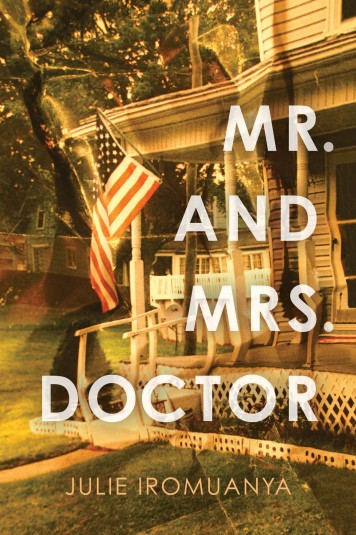
MV: Most American immigrant stories are set in cities, but your novel places Job and Ifi in semi-rural Nebraska. How would their story be different if they lived in New York City or Los Angeles?
JI: I was very purposeful about my decision to set Mr. and Mrs. Doctor in semi-rural Nebraska. Being a Nigerian immigrant in a place like Chicago, for instance, is a broader experience. There’s a lot more cultural diversity and a longer history of contact with immigrants. In my made-up town of Zonta, Nebraska, I wanted to magnify my characters’ sense of isolation, alienation, and difference. Nebraska is a place that conceives of itself as “middle America” and the “Heartland” with roots in family values and tradition. But what does it mean to not be part of the “family”? All of my characters — including Cheryl, Job’s first wife, a white native of Nebraska — are conceived of as outsiders and misfits in one way or another. In this marginal space, their proximity to one another is sharpened. So two characters like Job and Emeka, who come from starkly different backgrounds in Nigeria, are not only forced to inhabit the same space, but they must rely on one another. As result, while they can at times be viewed as friends or even brothers, they could also be seen as adversaries.
MV: What’s the best piece of advice on writing you’ve ever received?
JI: I don’t have any singular bit of advice that stands out in particular. I just know that I have benefited in so many ways from the generosity of my teachers and other writers along the way. At the University of Nebraska, I’m indebted to the time and energy my entire faculty offered me, but, in particular, my dissertation chair, Jonis Agee. No matter how awful I felt when I showed up for a meeting, I would leave marching with my head raised and ready to get to work.
MV: In a previous interview, you advised student writers to save all their writings, as one thought can lead to great success. Was that the case with Mr. and Mrs. Doctor?
JI: Indeed it was. Mr. and Mrs. Doctor started as a character sketch exercise in Susan Hubbard’s undergraduate fiction workshop at the University of Central Florida. For many years, I continued to return to that character — Job — until I discovered that to tell his story properly, I would need to write a novel.
MV: What’s next for you?
JI: I’m working on two other novels. A common feature of my work is exploring the condition of Nigerian immigrants, and their descendants, in America, and that continues to be the case with these projects. I know that is a little nebulous, but for now that’s all I can offer by way of description. ☺
**
Julie Iromuanya is the author of Mr. and Mrs. Doctor (Coffee House Press), a finalist for the PEN/Faulkner Award, the PEN/Robert W. Bingham Prize for Debut Fiction, and the National Book Critics Circle John Leonard Prize for Debut Fiction. Her scholarly-critical work most recently appears in Converging Identities: Blackness in the Modern Diaspora (Carolina Academic Press). She was the inaugural Herbert W. Martin Fellow in Creative Writing at the University of Dayton. She has also been a Jane Tinkham Broughton Fellow in Fiction at Bread Loaf Writers’ Conference, a Tennessee Williams Scholar at the Sewanee Writers’ Conference, and a Bread Loaf Bakeless / Camargo France Fellow. Her work has also been supported by fellowships from the MacDowell Colony and the Vermont Studio Center. Iromuanya earned her B.A. at the University of Central Florida and her M.A. and Ph.D. at the University of Nebraska-Lincoln where she was a Presidential Fellow and award-winning teacher. She is an assistant professor in the creative writing MFA program at the University of Arizona. More info at julieiromuanya.com
February 2nd, 2017 |
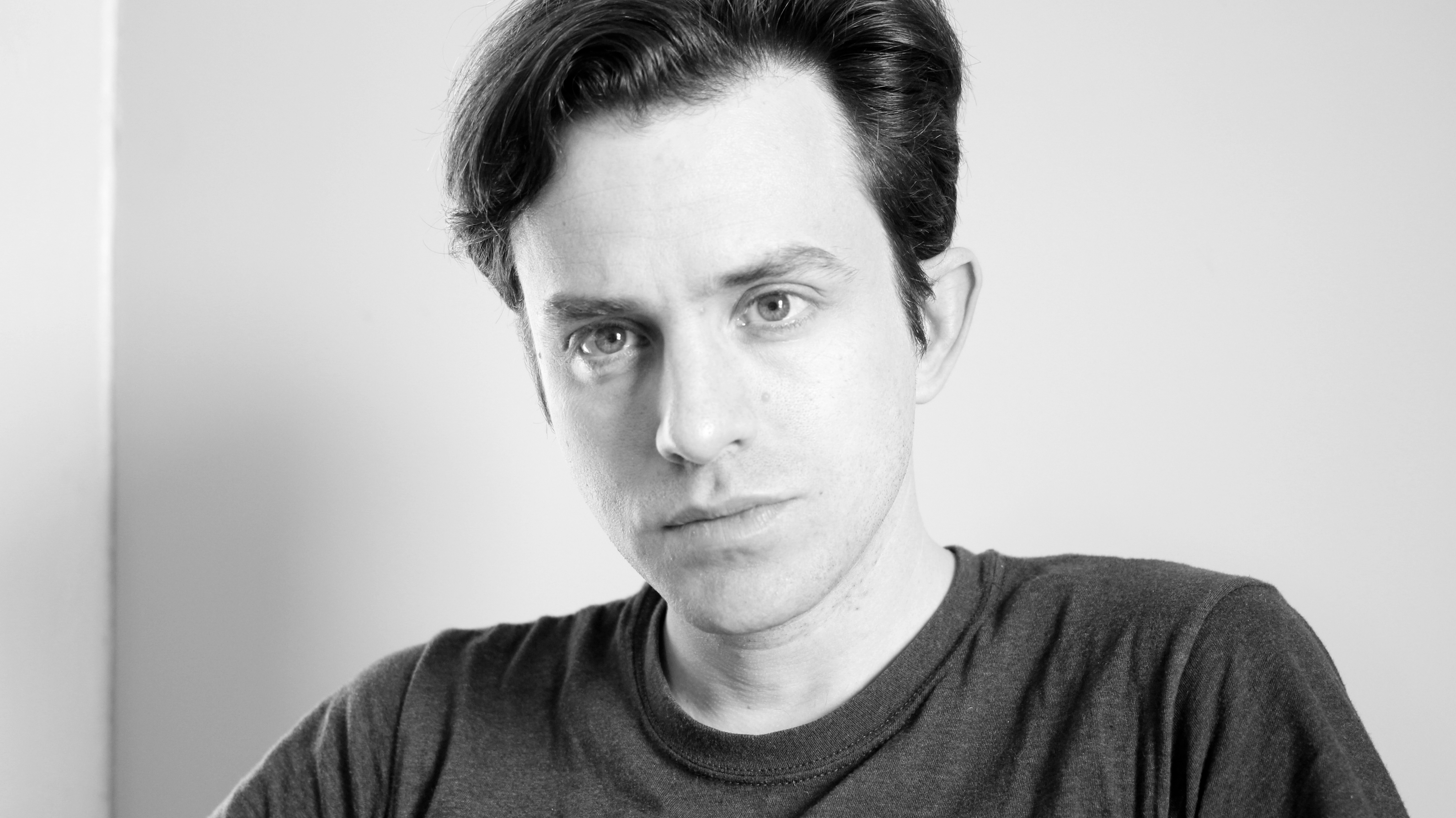 Midwestern Gothic staffer Kristina Perkins talked with poet Robert Fernandez about his collection Scarecrow, truth in the abstract, tracking the music in poetry and more.
Midwestern Gothic staffer Kristina Perkins talked with poet Robert Fernandez about his collection Scarecrow, truth in the abstract, tracking the music in poetry and more.
**
Kristina Perkins: What is your connection to the Midwest?
Robert Fernandez: I came to the Midwest at 23 to begin graduate studies at the Iowa Writers’ Workshop. I remember driving into Iowa City in the early morning, Fatboy Slim’s remix of Jim Morrison’s “Bird of Prey” on the speakers, and feeling hopeful that it could be the beginning of something great. After graduating, I was accepted to Iowa’s PhD in English. My wife and I bought a house, participated in the literary life of the Workshop, and eventually became friends with a number of local writers. While still in the PhD, I was offered a creative writing job in Nebraska, and have been teaching poetry workshops here ever since.
KP: You were born in Hartford, Connecticut. You grew up in Miami, Florida. You earned your MFA from the Iowa Writers’ Workshop. You currently live in Nebraska. Given these changes in landscape, how has your understanding of the Midwest shifted overtime? In what ways has your poetry reflected this shift — if at all?
RF: I admit I didn’t have much of a sense of what to expect from the Midwest. I had some sense of the region’s history, and I understood Iowa’s significance in the political landscape, but I had no real read on the area’s culture or ethos. I did know some Workshop mythology—its tales of hard-drinking writers like Cheever and Berryman—but, to be honest, my sense of what to expect was probably mostly conditioned by having watched the film adaptation of Denis Johnson’s Jesus’ Son (1999). I half expected to be partying in barns, breaking up fist fights, writing poems next to a space heater during heavy snowfall. (Which turned out to be not far off.) I think I expected something much more rustic and “American Gothic,” but ultimately it’s a very middle class, well-appointed town.
Settling in was refreshing because there wasn’t the feeling of the dispersion and relentless hustle of South Florida. It was new to me to see a community of people intent on a shared, non-lucrative, marginal practice, and to see that practice celebrated in the larger community.
I’ve done almost all of my work here in the Midwest, but my books are mainly Florida books. There is, however, a noticeable shift in Scarecrow away from a dominant coastal sensibility toward something more landlocked, Midwestern.
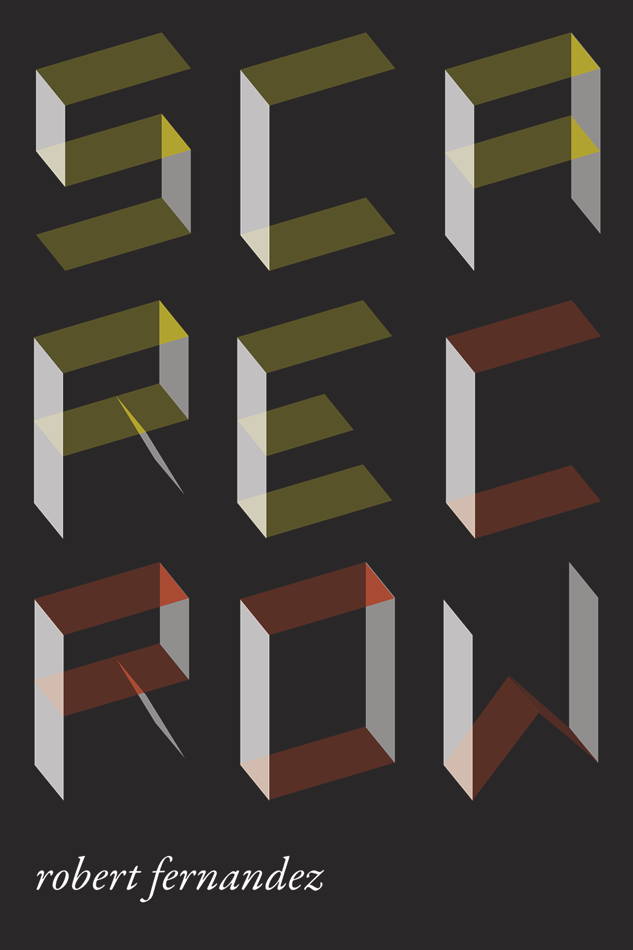
KP: Scarecrow is your third collection of poetry, following We are Pharoah (2011) and Pink Reef (2013). What do you see as the most notable difference between Scarecrow and your first two collections? How have you grown as a writer and poet between and among these publications?
RF: If I were to make some general distinctions, I’d say that We Are Pharaoh attempts, through its interconnected lyrics and sequences, to transmit a sense of the lifeworld of South Florida and a sense of its basic contradictions: extremes of wealth and poverty, a multiplicity of languages and identities, and the desire for continuity and history where the earth and money always acutely threaten to erode both. It’s a global place, charged with the feeling of possibility (every fifth car on the highway is a $150K car) as well as the heaviness of blockages to possibility, behind which the earth continuously reveals itself with sublime profligacy and extravagance. Pink Reef, a book-length serial poem, distills Pharaoh’s methods and lends them a more ungoverned, devotional emphasis. Scarecrow was written after completing my translation of Mallarmé, Azure. Unlike We Are Pharaoh and Pink Reef, Scarecrow is interested in how to move forward when restless willing and striving are no longer possible. It’s also the only book in which the collapse of the distinctions between the sacred and profane isn’t a primary conflict.
The books are very different from each other, but I’d like to think there are clear continuities borne out of the same essential questions. If I’ve developed as a writer, I’d say it’s in my ability to recognize and affirm those questions and to pursue the poems on their own terms in a more joyful manner.
KP: Scarecrow seems to push and pull at the extremities of life, using tangible Gothic details to help navigate the spaces between despair and hope. In your poetry, what is the relationship between the concrete and the abstract, the visceral and the philosophical? How do you choose to explore, complicate, or expand this relationship?
RF: I’d refer to Coleridge, whom I may butcher a bit here, and say that — contra what the Imagists said about going in fear of abstractions — when the imagination is present (here a disclosive faculty, able to see things that are concealed or beyond our scope) even something seemingly abstract can have the taste, feel, and force of truth. One should really go in fear of “fancy,” which Coleridge places in distinction to the imagination, because fancy only manages to synthesize or arrange what’s already at hand and thus doesn’t reveal or transport with the inevitably of a truth.
The questions this brings up are philosophical in nature: Is a work constructed or revealed? Willed or given? Is it really possible to be (in Alain Badiou’s terms) a subject of truth? How does one remain open and have fidelity to such a process?
KP: In previous interviews, you’ve emphasized the importance of sound in poetry, claiming that “poetic truth is foremost the truth of music.” What, to you, is the relationship between poetry and music? How is your work in Scarecrow influenced by this relationship?
RF: I think this is a question of metaphysics, in the sense that Heidegger pursues it, one taken up by modern poets like Rimbaud, Lorca, Jack Spicer, and Amelia Rosselli. These poets, in distinct ways, are making related and radically revisionist claims about our understanding of the human. Rimbaud claims “It is wrong to say: I think. One ought to say: I am thought.” And: “I is someone else. No matter for the wood that finds itself a violin…” Lorca talks about the duende as a “spontaneous creation,” “a power, not a work…a struggle, not a thought.” Spicer remarks that “Prose invents—poetry discloses.” And Rosselli says that “…the poem is made of liberation, not of reflection…”
Is the poet an agent that imposes truth, or one taken up by its demands? Is truth a matter of unconcealment or of correspondence—of the emergence of something unforeseen or of rational thought?
For the Pythagoreans, music was an ecstatic process—one that takes us outside of ourselves—and I think that when something truthful emerges in language it’s not essentially a matter of calculation or willing, but of anticipatory preparation and receptivity—of being prepared to be taken up by and submit to a rhythm not given in advance.
For me, Scarecrow is a very foreign book—it’s not a familiar music, not a mode I’m really at ease with; nevertheless, I tried to be as rigorous as I could be in tracking its music.
KP: Who is your favorite contemporary poet, and what type of inspiration do you draw from their work?
RF: I’m especially fond of the work of Mary Hickman. I was born in 1980, and I also like several US poets born around that time: Ariana Reines, Jon Leon, Farnoosh Fathi, Lynn Xu, Shane McCrae. Ten years or so on either side of 1980, I’d also mention Darrin Gonzales, a student of mine, and Anthony Madrid.
KP: What’s next for you?
RF: Since Scarecrow, I’ve completed two new books, Niños del Sol, which is a collection of voiced, rhyme-driven lyrics, and Crowns. I’ve also completed a fairly substantial body of visual-poetic work, which I’m calling “imaj-vers.” For instance, I recently completed a big visual book, Grand Grimoire (12.5X10.75in). With its debts to graffiti, illuminated manuscripts, children’s art, and studio art, Grand Grimoire is, at around 250 pages, a more sweeping (if smaller scale) extension of the other imaj-vers works that have occupied me for the last year: photographic, sculptural, and video sequences that use visual media to make poems. Finally, my translation partner and I have undertaken a translation from the Creole of the great Haitian poet Felix Morisseau-Leroy’s Antigòn (1953), an adaptation of Sophocles’s Antigone into a Haitian context. I’m hopeful that I’ll be able to see some of this work into the world within the next few years.
**
Robert Fernandez is the author of the poetry collections We Are Pharaoh (Canarium, 2011), Pink Reef (Canarium, 2013), and Scarecrow (Wesleyan, 2016). He holds an MFA in poetry from the Iowa Writers’ Workshop. His poems have appeared in Boston Review, The New Republic, Poetry, Conjunctions, A Public Space, and elsewhere. He was selected by Robyn Schiff as a New American Poet by the Poetry Society of America, and received a grant from the Andrew W. Mellon Foundation and a Gertrude Stein Award for Innovative American Poetry. In 2014 he served as an editor for the PEN Poetry Series. He is co-translator of Azure: Poems and Selections from the “Livre” (Wesleyan, 2015). Author site: www.robert-fernandez.com
January 26th, 2017 |
 Midwestern Gothic staffer Megan Valley talked with author John Keyse-Walker about his novel SUN, SAND, MURDER, writing a book he wanted to read, writing as a second career, and more.
Midwestern Gothic staffer Megan Valley talked with author John Keyse-Walker about his novel SUN, SAND, MURDER, writing a book he wanted to read, writing as a second career, and more.
**
Megan Valley: What’s your connection to the Midwest?
John Keyse-Walker: I grew up in rural Ohio, in a township just west of Cleveland. Except for a stint at Duke Law School in Durham North Carolina, I have made my principal home in the same county where I was born, Lorain County. I practiced law for thirty years in Lorain County and even after retirement, spend the majority of the year there.
MV: You have lived in Florida as well. How has each region influenced your writing?
JKW: My mysteries are set in the British Virgin Islands, which I think have a very small-town Midwest vibe. In the BVI, everyone knows everyone, people are friendly, and it’s hard to have secrets – all of which reminds me of Ohio, just with better weather and a more exotic setting. So I can say that the BVI I write about could, with a few changes to the stories, as easily be about Ohio or someplace else in the Midwest. As for Florida, it has instilled in me a love of the sea, the beach, and fishing, all of which figure significantly in my writing.
MV: For thirty years you were a lawyer. Did always know writing was something you wanted to do?
JKW: Writing was something I did, daily, as a lawyer but it was very different from the writing I do as a mystery writer. Did I always want to write fiction? I am an avid reader and I think every reader has at least passing thoughts of writing someday but it certainly was not a passion or a lifelong ambition for me.
MV: Why did you set SUN, SAND, MURDER in the British Virgin Islands?
JKW: Toni Morrison said “If there’s a book that you want to read but it hasn’t been written yet, then you must write it.” I had visited the BVI a number of times and grew to love the island of Anegada there. I wanted to read a crime novel set there, so I had to write it. It is the perfect place for a mystery – lots of quirky characters, a lush tropical setting that is almost a character in and of itself, and such a low crime rate that a murder there is truly a shock.
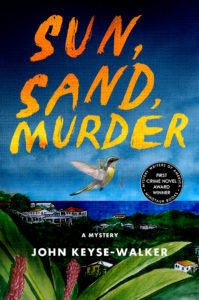
MV: Would you say you approach writing as a hobby?
JKW: I think it fits into the category of being a really fun second career for me now. What better career than one with flexible hours, an opportunity to research interesting topics, a modest amount of notoriety, and the ability to do the work sitting on my back deck overlooking Lake Erie or on the beach on Pine Island, in Florida?
MV: What was the inspiration for Anthony Wedderburn, “De White Rasta?”
JKW: There was a fellow I saw a few times on Anegada who inspired the look that Anthony has. He was a white guy, sported blond dreadlocks, and just drifted around the island. I never spoke to him, so the whole backstory of Anthony is pure invention. Indeed, Anthony was not intended to be a significant character when I started writing. He was simply going to find a body on the beach. But when I started writing his part, I liked him, so he took on a more prominent role in the book.
MV: After a career as a lawyer, your first novel is – fittingly – a crime novel. Do you stick to this genre?
JKW: It’s interesting that you would think it’s fitting for a lawyer to write crime fiction. Actually, my legal career was all civil cases, so criminal law almost never entered into my practice. But, to answer the question, I have no intention of writing outside the crime/mystery genre. It’s what I love to read, so it’s what I love to write. I think the genre is one of the most effective at providing the reader with pure entertainment and that, to me, should be the first objective of a writer.
MV: What’s the best piece of advice about writing you’ve ever received?
JKW: Write what you love. You are with the story, setting and characters in a novel for a long time, many hours spread over months and years. If you are not writing about something you passionately love, the topic or setting or characters will become tedious. None of us do good work if the work is tedious.
MV: What’s next?
JKW: I have completed the second book in the Special Constable Teddy Creque series, and it is currently with my agent. I have ideas for at least four books in the series, so I hope to complete at least that many. And I am currently working on a stand-alone murder mystery set on a German ocean liner on a round-Africa cruise in the days before the outbreak of WWII. The stand-alone is a project I really love because it is based on a cruise around Africa that my grandparents took aboard the North German Lloyd Line’s SS Columbus in 1939. Imagine visiting ports like Casablanca, Dakar, Cape Town, Mombasa, Zanzibar, Port Said, Villefranche, and Gibraltar in the pre-war era. Then couple that with a group of international passengers in an era of significant tension in the world, and isolationist sentiment in the U.S. I am having a great deal of fun writing it, and hopefully readers will have as much fun reading it.
**
John Keyse-Walker grew up in Columbia Station, Ohio, the son of a vegetable greenhouse operator and a stay-at-home mother. Much of his youth was spent exploring the fields, woods, and rivers near his rural home, or fishing and swimming in Florida, where his family had a modest second home. While he enjoyed reading, books took a backseat to outdoor pursuits. He attended the College of Wooster, in Wooster, Ohio, majoring in political science. He went on to obtain a law degree from Duke University School of Law (Go Blue Devils!), where he met a fellow student and Southern belle, Irene Walker, who became his wife. After law school, he took the Ohio bar and began a practice in Elyria, Ohio. For the next thirty years, he had a diverse practice consisting mostly of trial work, and for many years served as his firm’s managing partner. In 2012, he retired, planning to devote time to travel, fishing, tennis, kayaking, and volunteer work. When he found those pursuits failed to fill the hours in the day, he began to write. After two years of on-and-off efforts, he completed his debut novel, SUN, SAND, MURDER, which won the Minotaur Books/Mystery Writers of America First Crime Novel Award.
January 19th, 2017 |
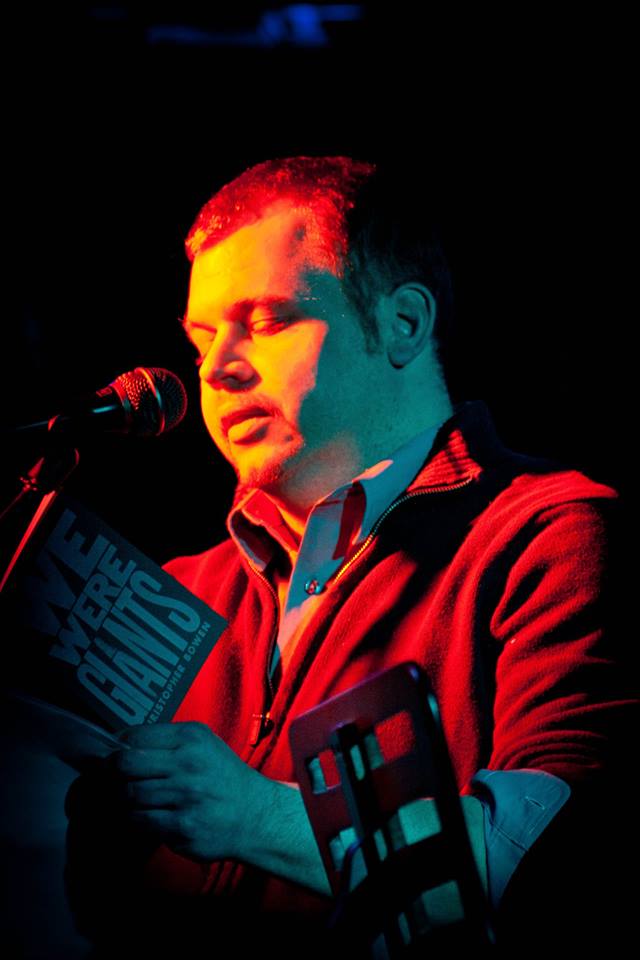 Midwestern Gothic staffer Audrey Meyers talks with author Christopher Bowen about his book, When I Return to You, I Will Be Unfed, making life work for oneself, life lessons from the publishing industry, the complexities of writing about mental illness and more.
Midwestern Gothic staffer Audrey Meyers talks with author Christopher Bowen about his book, When I Return to You, I Will Be Unfed, making life work for oneself, life lessons from the publishing industry, the complexities of writing about mental illness and more.
**
Want your own copy of When I Return to You, I Will Be Unfed? We’re giving away three copies of the book — find any of our posts about the giveaway on Twitter and retweet to be entered to win. Only one book will be awarded per person, but feel free to RT as many times as you want to get multiple entries! Deadline is Saturday, 1/14 at midnight. US only please.
**
Audrey Meyers: What’s your connection to the Midwest?
Christopher Bowen: Well, I was born in Cleveland in 1980. My father entered med school when I was 7 or 8 and my family was literally living on a string then, though I never knew it from all the love we had. We moved to Toledo, Detroit and back to the Cleveland suburbs throughout his career.
I suppose that’s where all my love of road trips first came from. That and Kerouac, ha. But I’ve also often felt so entitled to the land, to the ruggedness of its people. So much of the Midwest, the rustbelt even, is so hard earned.
So, I suppose, in another lifetime I would’ve graduated at four years with an English degree and gone on from that. But I didn’t. I had to make life work for me, for the environment around me, and those awkward mistakes I would make over time. That, specifically, meant graduating with my culinary degree in 2013 at a community college in Cleveland at thirty-three.
AM: In your previous interviews, you mention your many travels throughout the country. Which of these journeys have impacted you the most and how does it compare to the influence of your home base – the Midwest?
CB: I travel so much mainly because the cost of living here in the Midwest is so low, it affords me to. Last year though, I went to Arizona to visit family and we camped in the Superstition Mountains. I also read for the Flash Fiction Festival in Denver. Both really made me fall in love with the west, with mountains. Even just the picture of them and what they represent in life.
Though I saw some when I travelled the coast with my friend Jane (also an author), I am thinking of maybe settling in Colorado or the Rockies somewhere someday.
AM: In addition to being an author, you are the founder of Burning River, a publishing press. What are the greatest lesson you’ve learned from starting your own publishing press?
CB: The best answer to this, the one thing I’ve learned, is nothing shorter than a lesson in life. I mean, something you can only get from living life and not necessarily ‘publishing.’ To remain humble and honest. It’s something that’s carried me through my career as a chef, something a lot of people sometimes note once they’ve met me or get to know me more in person. There’s a hard earned character to that and a lot of hard mistakes made.
Have you ever seen the movie, The Big Kahuna? The best picture I can paint is Danny Devito’s ending monologue about regret and having made mistakes that you haven’t even realized yet.
So, yeah, I published journals, chapbooks…ran my own blurbs or reviews of others’ books over the years on my blog. I paid for the physical design of the books through school grants and even, sometimes, there we made mistakes. But I started it because I wanted the mistakes as much as the experience, as hard as that is to say. Most importantly, I was able to grow through those people I met as I worked with them and meandered through small publishing.
I’d like to think those same people would appreciate me as the growth of a person and man, and not necessarily that of a writer.
AM: Your book, When I Return to You, I Will Be Unfed, treats the difficult topic of mental illness. What made you want to write about mental illness? And how did you cope with covering this complex topic within a short and compact book?
CB: I wrote about mental illness because of the world’s stigma and my own personal experiences with it. How limited we make our lives or perspectives, not only in judging people or unseen illnesses, but also in forgetting to share that part of ourselves with other people we meet in life. That these are missed chances, missed conversations, that deeply connect us to each other as human beings.
It originally began as a project for NaNoWriMo years ago before I’d even finished school. After so long, I realized it had become much more personal and not only had to see print and be read, but that it was my duty to do that for others’ sake, whether facing something similar or simply because of my habit of being so honest in my writing.
AM: When I Return to You, I Will Be Unfed features an interesting narrative style with multiple viewpoints. What are your reasons for switching point of view throughout the story?
CB: I really just wanted to show an ‘inside’ and an ‘outside.’ Inside a hospital, outside the world, or a society. This included friendships that at that age are really critical to identity. I suppose that’s why it became such a narrative of Rob and Jim’s friendship, but mostly Jim.
AM: You’ve written a number of short stories. Where do you find inspiration for starting new work?
CB: Patience and free time, honestly. If I really think long and hard about a concept, a relationship, a predicament, I really just want that person explained to other people: their wants, their hurts, desires. The story ends when my gut tells me it does and I walk away from it as ‘finished.’
AM: What do you wish you had known before you began writing?
CB: When I was younger, I read so much and became the quiet kid in school for a lot of reasons, but mostly the moving we did. I was a good observer and I always wrote creatively, but a small part of me, a small sliver, dreamt of being some great, dead author and that some small part of me, my writing, would persist through my own personal life and death.
But what I’ve come to learn is that writing is second-hand. That being heard and read and published and remembered are all a great feeling, but that you, the person, your family, your friends, your experiences are so much more that matters in this lifetime. It’s honestly one of the biggest reasons I travel much anymore, to put that faith to the test. To test the boundaries of my own life experience.
AM: What’s next for you?
CB: I’ve whittled a small story down to bare bones and am planning on expanding it. It will likely expand again, then I may retract it more. But a lot deals with the complexity of the father-son relationship, masculinity, even the deeper meaning of simply ‘water’ in our world, fluidity. I suppose a lot of the inspiration comes from reading Robert Bly’s Iron John and my own relationship with my father.
I’m also considering working on a text about an inspirational musician for me, Justin Vernon of Bon Iver. After all, the band’s name is a play on the French for ‘Good Winter.’ And in all honesty, I’m hoping it will be.
**
Christopher Bowen is a Midwestern chef and the author of the books We Were Giants and When I Return To You, I Will Be Unfed. He blogs from Burning River.
January 12th, 2017 |
 Midwestern Gothic staffer Lauren Stachew talked with author Christopher Barzak about his novel Wonders of the Invisible World, the socioeconomic reality of the Midwest, the importance of reading as a writer and more.
Midwestern Gothic staffer Lauren Stachew talked with author Christopher Barzak about his novel Wonders of the Invisible World, the socioeconomic reality of the Midwest, the importance of reading as a writer and more.
**
Lauren Stachew: What’s your connection to the Midwest?
Christopher Barzak: I grew up on my grandfather’s beef farm in northeastern Ohio. In a town of around three thousand people, where everyone knew one another, where my graduating class was around sixty, and where, whenever you happened to look up and notice a plane etching white trails in the sky above, you were reminded that you lived in that broad landscape others dismissively call Flyover Country, it was a quintessential Midwestern upbringing, including 4-H, the semi-crazed fervor of deer hunting season, and Homecoming parades. The works.
LS: You spent a few years abroad teaching English in Japan. How did your perception of the Midwest change once you returned to the U.S.?
CB: While I was living in Japan, after enough time passed for me to be able to look over my shoulder and see how far away from home I was living for a still unknown period of time to come, I began to look homeward to the Midwest and to see the things I hadn’t known I liked about it. Some of the smallness of small town Ohio had qualities that were great comforts to me as a child, even though the more I grew into adolescence and adulthood, the more it grew to feel too tight a fit for who I was becoming. Some qualities of the seeming unchangingness of small towns in the Midwest, though, warm me on the coldest days. Sometimes the tightness of a small community isn’t restrictive so much as embracing. Being able to know and be known in your community is often, especially in literature, viewed as parochialism and inherently limiting to a person’s development into broad-mindedness. That’s not necessarily true, though it can be. Something positive about a small community, though — even maybe even a small community that’s extremely remote — is that you don’t necessarily fall through the cracks and chasms that make up large and anonymous-making environments, which tend to produce narratives about people who, despite living among millions, feel incredibly disconnected and lonely among others.
LS: Your most recent novel, Wonders of the Invisible World, blends a small-town Ohio setting with LGBT topics, magical realism, and the discovery of family secrets. When and how did the origins for this story come about, and how did you manage to weave these ideas together?
CB: I began writing the novel right before I moved to Japan, the summer of 2004. But when I moved to Japan, all I wanted to write about was Japan. So I did that, and put the opening of Wonders of the Invisible World aside for the time being. Two years later, when I was finished with the book I wrote in Japan and back home to see my first novel, One for Sorrow, be published, I looked at the opening material I’d created and immediately wanted to go back to it. The material I had created happens to be a chapter that comes toward the early middle-half of the novel, which is a section that takes places a hundred years prior to the narrator’s contemporary present, in which his great-grandfather in hubristic fashion makes a decision that delivers a curse onto the narrator’s family. To see that family line wither and for the men in it to die untimely deaths, which they do afterwards. Until the narrator, Aidan Lockwood, in the present begins to unravel the threads of the past that have been obscured by other forces, in an attempt to save his family from the eventuality of dying out completely. It was all of about thirty pages that I had to work with, and I discovered more than figured out the magical aspects of the story as I felt my way forward and began to develop the history of the family as well as its present status. In many ways, it can be read as a story that charts the withering of the Midwest itself, and the efforts that so many of us here put into saving it from further reduction.
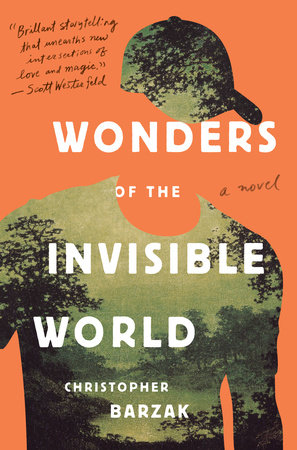
LS: Aidan Lockwood, the main character, describes Temperance, Ohio as “not really the sort of place anyone moves back to,” which, although pessimistic, feels like a very quintessential Midwestern phrase. Why do you think this is such a common trope associated with the Midwest, and how does your personal vision differ from Aidan’s?
CB: I think that’s definitely a phrase that’s associated with living in Midwestern small towns. It does feel pessimistic, but it’s also realistic. In the past people were always leaving the Midwest for life in urban centers elsewhere, but many people also stayed and made families, so there was a sort of balance to that equation. But for decades now, people have been leaving in higher numbers and faster rates, mostly to find work somewhere else, to find a better life. The reduction of the various manufacturing industries across the Midwest has forced this sort of work-based exodus, so that in a place like Youngstown, Ohio, where I live and teach, what had once been a population of 175,000 people is now 65,000. So, despite the phrase “not really the sort of place anyone moves back to” seeming a bit negative, it’s also just a socioeconomic reality to much of the Midwest, though I know some places in the Midwest have fared a little better than others. How does my vision of the Midwest differ from Aidan’s on this particular quote? Even though I am someone who moved back to the region where I grew up, I do think it’s just a fairly neutral observation grounded in the reality of the Midwest’s population loss. Some people do move back, and they have a variety of reasons for doing so, but they’re still more in the minority in that particular way.
LS: Besides novels, you have also written two collections of short stories, Before and Afterlives, and Birds and Birthdays. In your experience, how is the process of writing short stories different from that of a novel, and is there one that you prefer over the other?
CB: The process of writing short stories differs from my process of writing novels mainly in only one way: the length of time it takes to write one or the other. There are, admittedly, other considerations that make the forms different, but the most extreme defining difference for me is the period of time it takes to maintain the kind of intensity of focus required to write both. I don’t know that I prefer one form over the other. They both have different qualities that I enjoy and appreciate, both as a reader and a writer, and that make me love them both (as well as the sorts of forms that exist between the two, like novels-in-stories, which is kind of like having your peanut butter and chocolate together).
LS: How do you feel that your writing has evolved with each new novel? Has your style changed, or do you feel drawn to different ideas that you wouldn’t have previously explored?
CB: Each novel requires something different from me. Each one demands I learn how to write it specifically, with its own unique set of challenges for me to figure out. Those challenges might include figuring out the trick of capturing a particular voice, or in figuring out an unfamiliar story structure or perspective, or maybe in figuring out how to write historical narrative, or some other kind of narrative I’ve not yet had experience with as a writer. So each one has given me an opportunity to acquire and develop new writerly skill sets. When I come to a new book now, I do think I can begin to discover it and develop it at perhaps a somewhat quicker pace than I used to be able to, but I don’t think my style itself has changed, mainly because my style has been to develop a style that suits the story being told, more than to impose a particular style on any type of story. I do think each novel feels distinct, though. I think each feels like they’ve been written by the same person, regardless of their differences.
In regard to feeling drawn to different ideas that I might not have previously explored, yes. The ideas I’m drawn to have always been something that changes, simply because I’m a naturally curious person, and when something new captures my attention I tend to obsessively try to learn about it. These things tend to work themselves into my imagination and later become fodder for story.
LS: As a faculty member at the NEOMFA in Youngstown State University, is there a piece of advice you always give to your students?
CB: Yes. My hold steady, bottom line piece of advice is that if they want to write, they need to read widely. To learn from authors whose work they might not even enjoy, or to learn from reading a type of story they generally don’t like, in order to acquire whatever techniques those types of stories may teach them to employ, even if in a wholly different kind of narrative.
LS: How do you know when a piece of writing is finished?
CB: When I feel like I can’t figure out anything else I can do to make it better, even after I’ve had other people read it and tell me what else they think I could do to make it better. I know I’m done when, after a while, I don’t wake up at night with ideas for revision or development, and when I walk away from the work for a long enough while and go back to it and am pleased by what I’ve made, rather than somehow still dissatisfied.
LS: What’s next for you?
CB: I just completed a draft of my next novel, The Gone Away Place, which will hopefully release in Fall, 2017. It’s a story about a town decimated by a natural disaster, and the hauntings the community experiences in the wake of their loss. It’s also, on the small scale, the story of a seventeen-year-old girl who’s suffering survivor’s guilt after her best friends and boyfriend perish.
**
Christopher Barzak is the author of the Crawford Fantasy Award winning novel, One for Sorrow, which has been made into the Sundance feature film Jamie Marks is Dead. His second novel, The Love We Share Without Knowing, was a finalist for the Nebula Award and the James Tiptree Jr. Award. His most recent novel, Wonders of the Invisible World, was published by Knopf in 2015, and received the Stonewall Honor Award from the American Library Association. He is also the author of two collections: Birds and Birthdays, a collection of surrealist fantasy stories, and Before and Afterlives, a collection of supernatural fantasies, which won Best Collection in the 2013 Shirley Jackson Awards. Christopher grew up in rural Ohio, has lived in a southern California beach town, the capital of Michigan, and has taught English outside of Tokyo, Japan, where he lived for two years. Currently he teaches fiction writing in the Northeast Ohio MFA program at Youngstown State University.
January 5th, 2017 |
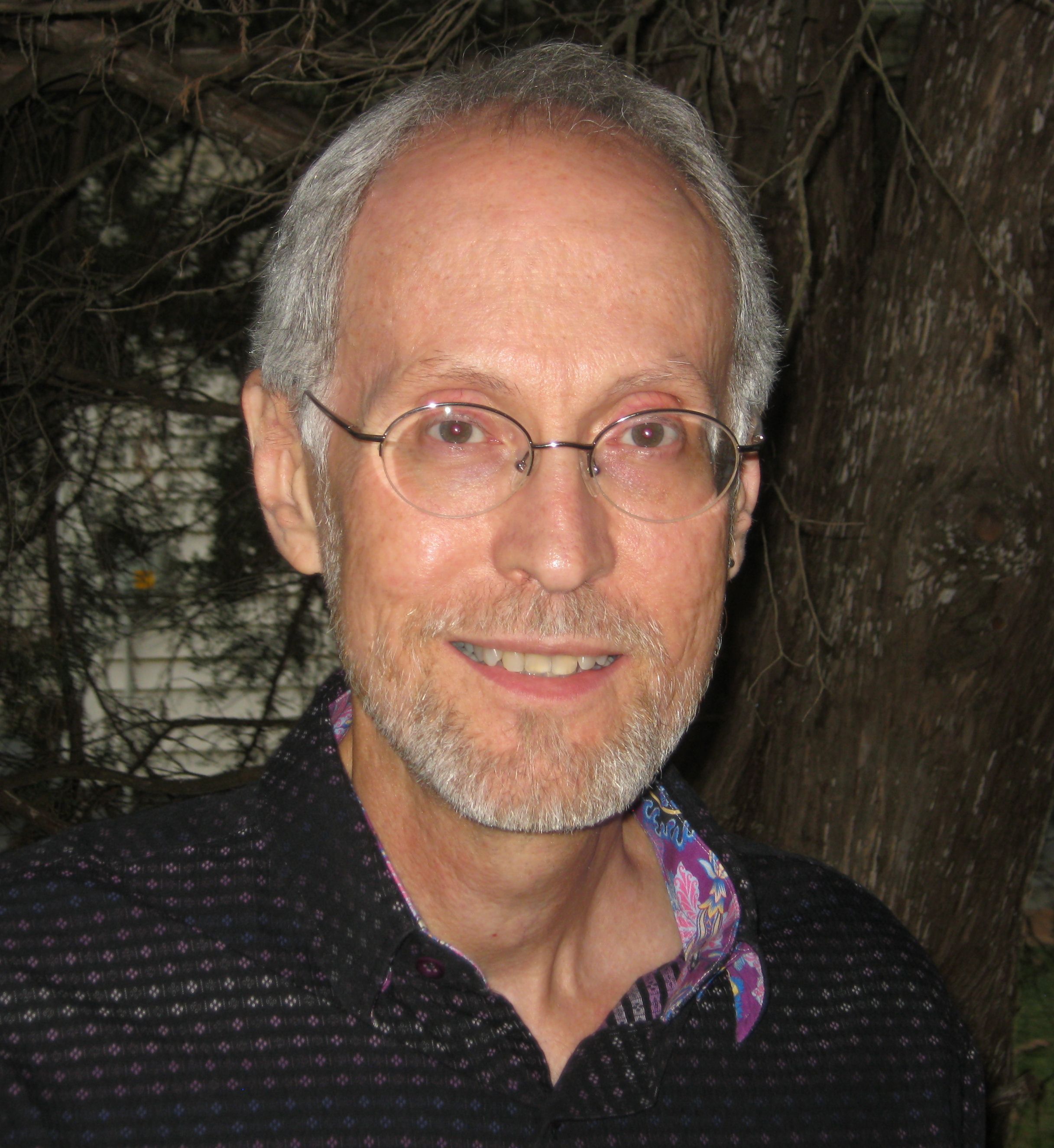 Midwestern Gothic staffer Sydney Cohen talked with author Lee Martin about his novel Late One Night, unreliability of perspective, deepening characterization, and more.
Midwestern Gothic staffer Sydney Cohen talked with author Lee Martin about his novel Late One Night, unreliability of perspective, deepening characterization, and more.
**
Sydney Cohen: What’s your connection to the Midwest?
Lee Martin: I was born in a farming community in southeastern Illinois, and like many writers, I spent too many of my early years thinking that no one would be interested in reading about what I knew from those farms and small towns. Luckily, I finally figured out that this was the world I knew most intimately, and if I couldn’t make it interesting, I wouldn’t be able to make anywhere interesting. I spent a number of years away from the Midwest. Then, in 2001 I had a chance to return when Ohio State University offered me a teaching position. I’ve lived in Columbus ever since, but I make frequent trips back to the native lands of Illinois. In fact, I’m answering your questions today from the public library I used when I was in high school. Something about that please me very much.
SC: Your new novel, Late One Night, explores the transformative power of rumors and prejudice when searching for the truth, specifically in Ronnie’s attempt to maintain his innocence and discover the truth behind his family’s tragedy. What interests you about the genre of mystery, as well as these elements of unreliability in perspective?
LM: My new novel, Late One Night, is based on a true story that happened not too far from where I grew up. On a bitterly cold winter night, a house trailer out in the country caught on fire, and unfortunately a mother and some of her children died. I started playing the what-if game. I wondered what would happen if the husband was living outside the home on the night of the fire. I wondered what would happen if he was involved with another woman. And what would happen if the fire turned out to be the result of arson. Knowing these small midwestern towns as I do, it was only natural for me to wonder what would happen if rumor and gossip pointed toward the husband as the guilty party. What would that do to him and his fight for the custody of his surviving children? What would it all do to the community? In the story of Ronnie Black, I was interested in using elements of mystery to explore his character. I’ve always been interested in the things people carry with them – things they wouldn’t want known – and how much they can stand to tell at any one time. I use the mystery to put pressure on Ronnie until at the end of the book, he has no choice but to tell the entire truth of what happened at that trailer on that cold winter night. Even though Late One Night has an element of mystery to it, it’s not a traditional whodunit. I think we’re all unreliable narrators of our own lives in one way or another. I use the form of the mystery and the shifts in perspective as a way to highlight that fact. Ultimately, this is a story of community and family and the responsibilites we have to one another.
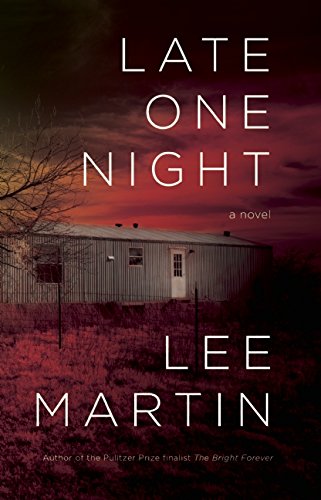
SC: Furthermore, your characterization of Ronnie attempts to humanize a character that would otherwise be seen as the heartless villain. What inspires you to disrupt this character stereotype, and what is your process in doing so?
LM: My challenge with any character is to see that person as completely as I can. Ronnie is hot-tempered and indiscreet. He makes rash decisions that often lead him into trouble. At heart, though, he wants what we all want: to love and to be loved in return. It’s also important to him, in the aftermath of the fire, that he prove himself to be a good father. In his heart of hearts, he loves his children very much. Yes, he makes poor choices from time to time, but there are other characters in the book – characters considered to be good people – who make poor choices as well in the name of doing the right thing. It’s so hard, this living, and we can cause all sorts of problems even at times when we swear we’re making the right choices. In many ways, to live is often to fail, and that’s what being human is all about. Ronnie is also a product of his place and his time. This part of Illinois is extremely economically depressed, and it’s ravaged by a drug problem and too many people living with too little hope. As a writer, I have to understand all of that just as I have to understand the history that a character like Ronnie carries with him. I often challenge myself to think of all of my characters, especially those like Ronnie, who may not be particularly admirable, as small children. If I do that, I can’t help but have empathy for them and an understanding of how they became the adults that they are. So I challenge myself to think in terms of opposites. I want to hold in my mind the image a character has presented of him or herself to the world, but at the same time, I want to be in touch with the opposing aspects of that character. I want to look for his or her moments of vulnerability and the moments they keep hidden. I want to see the children inside them, and I want to love them for the scars their living has left on them. This is all about deepening my characterizations, so my readers believe I’ve put a real person on the page.
SC: Despite living all over the country, you were born in Illinois and live now in Ohio. How has the Midwest influenced your writing, whether in Late One Night or your previous work? Are there any aspects of your work that you would call distinctly regional?
LM: I don’t think of myself as a regionalist, but I do take pleasure in dramatizing the stories of people in rural areas. These people don’t often have a voice in our wider culture, so I’m pleased to do what I can in my work to allow them to have one. I try to capture the nuances of characters living their lives in my little slice of Illinois, and, if I do my job properly, I let readers see that those characters’ lives aren’t all that much different from their own, no matter where they live. We all share the desire for connection, and we often make mistakes as we try to achieve it. I also take great pleasure in seeing the subtle beauty of a landscape that many people who don’t live there often deride for its flatness, its starkness, its agricultural ugliness, its lack of sophistication. The truth is the rural Midwest, no matter what some may think, is a place of beautifully dramatic changes in weather, of nuances of landscape, and glorious contradictions. Just like the people who live there. That’s what I try to capture in my work. If a writer is in touch with the landscape and the culture, he or she can’t help but be in touch with the complexity of the lives lived there.
SC: You have an extensive repertoire of both fiction and nonfiction books. How do your inspirations elicit a novel over a memoir, or vice versa?
LM: When it comes to deciding whether a certain experience will find its shape in fiction or nonfiction, it’s usually a matter of whether I think there’s something important for me to claim and to announce as my own. My first book was a collection of stories, The Least You Need to Know. They were stories about sons in difficult relationships with fathers. Writing that book was a completely different experience for me than the one I had when I wrote my first memoir, From Our House. Writing that book brought me to a level of understanding of what it was to have my father’s life that the stories never quite reached, at least not in a way that was personally significant for me. Patricia Hampl once said that the memoir is never about the past; it is, instead, about the future. If I sense that writing about a certain experience will give me something I need for the future, then I use that material in nonfiction.
SC: Is there a distinct decision process, or does the decision to write a memoir or piece of fiction come naturally?
LM: The decision about whether to use material for fiction or nonfiction is usually an instinctual one for me. The writing will make clear whether I’ve chosen the proper form.
SC: How does teaching influence your writing?
LM: Teaching is a creative activity just as writing is, and if I enter into it with that sort of energy, I usually get a good deal of energy back from my students and their work. I also hear myself say things in workshop that make me think about my own work in a productive way. It’s all part of the ongoing conversation that writing provides, and I’m grateful for it.
SC: What’s next for you?
LM: Next up is a craft book about telling stories and the writing life, plus a new collection of stories coming out from Dzanc Books. I also have a draft of a new novel and a new memoir to get back to.
**
Lee Martin is the author of the novels, The Bright Forever, a finalist for the 2006 Pulitzer Prize in Fiction; River of Heaven; Quakertown; Break the Skin, and Late One Night. He has also published three memoirs, From Our House, Turning Bones, and Such a Life. His first book was the short story collection, The Least You Need to Know. He is the co-editor of Passing the Word: Writers on Their Mentors. His fiction and nonfiction have appeared, or are forthcoming, in such places as Harper’s, Ms., Creative Nonfiction, The Georgia Review, The Kenyon Review, Fourth Genre, River Teeth, The Southern Review, Prairie Schooner, Glimmer Train, The Best American Mystery Stories, and The Best American Essays. He is the winner of the Mary McCarthy Prize in Short Fiction and fellowships from the National Endowment for the Arts and the Ohio Arts Council. He teaches in the MFA Program at Ohio State University, where he is a College of Arts and Sciences Distinguished Professor of English and a past winner of the Alumni Award for Distinguished Teaching.
December 29th, 2016 |
 Midwestern Gothic staffer Sydney Cohen talked with author Jacquelyn Mitchard about her novel Two if by Sea, the intersection of genre and realistic fiction, transporting readers on a global scale, and more.
Midwestern Gothic staffer Sydney Cohen talked with author Jacquelyn Mitchard about her novel Two if by Sea, the intersection of genre and realistic fiction, transporting readers on a global scale, and more.
**
Sydney Cohen: What’s your connection to the Midwest?
Jacquelyn Mitchard: I’m a Midwesterner, always will be—even if I live in Scotland (I don’t). I was born in Chicago and still have family there; I go back all the time, especially to see my brother and sister and to the Ragdale Foundation in Lake Forest IL, where I love to go to write and am part of the board of curators. Not long ago, someone at a college in Vermont where I teach said, apropos election commentary, “You can trust him. He’s a man of Chicago.” Another guy wanted to know, just what does this mean? A man of Chicago? And the first fellow said, “Well, he’s a straight shooter. And he sounds like Jackie.”
SC: Your new novel, Two if by Sea, intertwines the genre of science fiction in Ian’s telepathic abilities with the rural life of the Midwestern farm. What interests you about the intersection of genre and realistic fiction? How do you blend science fiction into a realistic setting?
JM: I don’t know if it’s science fiction, exactly… but I guess if there is something that is biologically different about this child (a telekinetic gift) that is science fiction. A gifted editor once told me that the best magic realism is more realism than magic, and I tried very hard to make Ian’s extraordinary ability become an everyday thing within the lives of the people in his world — while still making it clear that, if a child like this really did exist — there would be many who would want to exploit him.
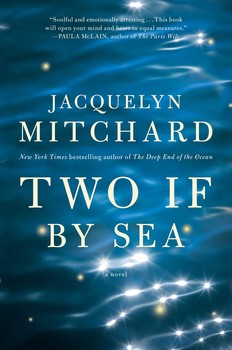
SC: Two if by Sea takes place on a grand scale, moving across different continents as the focus shifts from Brisbane to the American Midwest to the English countryside. As an author, how do you widen your lens to focus not just on a specific region, but on an entire global section? What are the challenges of this process?
JM: It was great fun, and I love different settings and the people within them. Often, of course, I write in very finite locations, but the challenges really are the same, and they come down to recognizing that people are generally much like other people in any setting, with the same hopes and fears and beliefs, and only the trappings are different.
SC: What inspires or intrigues you about stories on an expansive geographic plane?
JM: I think reading a story should be an immersion experience, like virtual reality. So, in this way, I’m able to transport the reader to the southern hemisphere, to the English countryside — all while holding safe to the hands of the characters they have come to know and trust.
SC: You have written an extensive collection of novels for adults, young adults, and children. What is important to keep in mind when writing for these different audiences? What components or themes of your work would you say are universal?
JM: I guess the components that are universal are that human experience is diverse only in the details, but the details are what make the story glimmer! When I write for teenagers, I have to remember that their emotional topography is steep and vast, and when I write for adults, I have to remember that it may take longer for a moment of true understanding to come to someone who’s seen more of the world. Even so, the world of the young adult is accessible to me in that it may be true that I was never more alive or more truly my unvarnished self than I was at sixteen.
SC: How has growing up and working in the Midwest influenced your writing? Would you say there are any aspects of your novels that are distinctly regional?
JM: A radio interviewer for NPR once said that there was a “broad streak of Midwestern decency” in my stories. And I would like to think that may be true. There is something that is somehow larger about a story set in landscapes that are closer to the earth, the horizon, subject to the weather… if you think of what people mean by a “New York” story, they may mean something intensely personal, cerebral, focused on the individual. That would be rather the opposite of what I do sometimes. While characters’ individual lives and dreams are at the forefront of every story I write (in that, you don’t write a story about ideas, instead, ideas emerge through the people and the events) the landscape is important, too. You’ve made me homesick for that big sky.
SC: Who are some of your favorite authors, and how does their work inspire your own?
JM: Among my favorite authors is the glorious Lorrie Moore (Birds of America), one of the most perceptive and funny writers of our time, and Andrea Barrett (The Voyage of the Narwahl) who writes about nature and the people who revere it, and the Scots mystery writer Denise Mina, the historical Daniel James Brown (The Boys in the Boat) and every, single word that Elizabeth Strout (My Name is Lucy Barton) ever wrote. If all of these writers have one thing in common, it is their ability to observe and translate the world, including the nature of people. They teach me how to see.
SC: What’s next for you?
JM: Spooky classic ghost story based loosely on the legend of the lost colony at Roanoke, but in a more northerly location. It’s scary. It’s really scary.
**
Jacquelyn Mitchard is the number one New York Times bestselling author of nine novels for adults, including The Deep End of the Ocean, the inaugural selection of the Oprah Winfrey Book Club that was also made into a major feature film, and her most recent novel, Two if By Sea. The editor of a realistic Young Adult imprint, Merit Press, she also is the author of seven novels for Young Adults. She has won the Bram Stoker and Shirley Jackson awards, as well as the UK’s Talkabout Prize, and her work also was short-listed for the Orange Broadband Prize for Fiction. Mitchard is a professor of Fiction and Creative Non-Fiction at Vermont College of Fine Arts and a frequent contributor to such magazines as Glamour, Readers Digest, and Real Simple. Her short stories and essays have been widely anthologized. She grew up in Chicago, and now lives on Cape Cod with her family.
December 22nd, 2016 |

 Romina Lutz aka “Schwebewesen” is a digital artist who creates surrealistic and dreamy vector art. Her interests are traveling, books, music, taking pictures, cycling and savoring life. You can buy Schwebewesen art prints and various products through her website ► www.romina-lutz.at or follow her on social media:
Romina Lutz aka “Schwebewesen” is a digital artist who creates surrealistic and dreamy vector art. Her interests are traveling, books, music, taking pictures, cycling and savoring life. You can buy Schwebewesen art prints and various products through her website ► www.romina-lutz.at or follow her on social media: Midwestern Gothic staffer Megan Valley talked with author Brit Bennett about The Mothers, writing about the complex and emotional issue of abortion, beginning with a question, and more.
Midwestern Gothic staffer Megan Valley talked with author Brit Bennett about The Mothers, writing about the complex and emotional issue of abortion, beginning with a question, and more. Midwestern Gothic staffer Megan Valley talked with author Pamela Erens about Eleven Hours, the underdeveloped theme of childbirth, writing for herself and more.
Midwestern Gothic staffer Megan Valley talked with author Pamela Erens about Eleven Hours, the underdeveloped theme of childbirth, writing for herself and more.
 Midwestern Gothic staffer Megan Valley talked with author Julie Iromuanya about Mr. and Mrs. Doctor, her development as a writer, rural alienation, and more.
Midwestern Gothic staffer Megan Valley talked with author Julie Iromuanya about Mr. and Mrs. Doctor, her development as a writer, rural alienation, and more.
 Midwestern Gothic staffer Kristina Perkins talked with poet Robert Fernandez about his collection Scarecrow, truth in the abstract, tracking the music in poetry and more.
Midwestern Gothic staffer Kristina Perkins talked with poet Robert Fernandez about his collection Scarecrow, truth in the abstract, tracking the music in poetry and more.
 Midwestern Gothic staffer Megan Valley talked with author John Keyse-Walker about his novel SUN, SAND, MURDER, writing a book he wanted to read, writing as a second career, and more.
Midwestern Gothic staffer Megan Valley talked with author John Keyse-Walker about his novel SUN, SAND, MURDER, writing a book he wanted to read, writing as a second career, and more.
 Midwestern Gothic staffer Audrey Meyers talks with author Christopher Bowen about his book, When I Return to You, I Will Be Unfed, making life work for oneself, life lessons from the publishing industry, the complexities of writing about mental illness and more.
Midwestern Gothic staffer Audrey Meyers talks with author Christopher Bowen about his book, When I Return to You, I Will Be Unfed, making life work for oneself, life lessons from the publishing industry, the complexities of writing about mental illness and more. Midwestern Gothic staffer Lauren Stachew talked with author Christopher Barzak about his novel Wonders of the Invisible World, the socioeconomic reality of the Midwest, the importance of reading as a writer and more.
Midwestern Gothic staffer Lauren Stachew talked with author Christopher Barzak about his novel Wonders of the Invisible World, the socioeconomic reality of the Midwest, the importance of reading as a writer and more.
 Midwestern Gothic staffer Sydney Cohen talked with author Lee Martin about his novel Late One Night, unreliability of perspective, deepening characterization, and more.
Midwestern Gothic staffer Sydney Cohen talked with author Lee Martin about his novel Late One Night, unreliability of perspective, deepening characterization, and more.
 Midwestern Gothic staffer Sydney Cohen talked with author Jacquelyn Mitchard about her novel Two if by Sea, the intersection of genre and realistic fiction, transporting readers on a global scale, and more.
Midwestern Gothic staffer Sydney Cohen talked with author Jacquelyn Mitchard about her novel Two if by Sea, the intersection of genre and realistic fiction, transporting readers on a global scale, and more.




